Turning points: Syria and the Russian diplomacy. Stalingrad syndrome.
“Damascus is the “Stalingrad” of Russian diplomacy. After years of geopolitical withdrawal, Moscow has chosen Syria as a way to revive its image of power in the world. “Not one step back” is the Kremlin’s new strategy, as it was for the Red Army along the banks of the Volga river during World War II. To be more convincing, the Kremlin has simultaneously flexed its muscles by supplying sophisticated […]
On October 9th at 2 p.m. meeting in support of Radio Liberty at the US embassy in Moscow. On October 10th journalists.

—
To the International Committee of the U.S. Congress
U.S. Secretary of State Hillary Clinton
Senator Benjamin Cardin
September 27, 2012
Dear Mr. Cardin, dear Ms. Clinton
We deeply regret to officially announce that following the decision of the management Radio Liberty stops its medium- wave broadcasts.
It has been done at the moment, when the regime of Vladimir Putin launched a new attack on the freedom of speech and Democratic movements in Russia. Human rights organizations are declared “foreign agents”, USAID stops its work in Russia.
Radio Liberty has existed for more than 60 years and for the whole generations of 1960- 80th was a source of accurate information. Current situation in Russia looks more and more like USSR. Current domestic and foreign policy is determined by people, who came from KGB and it is becoming clear, that we cannot lose the traditions of the station, which has always been taking very active civil position based on the universal values of freedom, democracy and human rights. In today’s Russia all these values are being attacked by the government.
Reorganization of Radio Liberty work was carried out in a form of shameful and abusive for its employees “special operation”. Any KGB could not harm the image of the radio and the United States in Russia as did US managers- the President of the Radio Liberty Steven Korn and the vice- president Julia Ragona.
They have ignored BBG’s (Broadcasting Board of Governors) findings confirming the effective work of the Russian service of Radio Liberty (http://www.bbg.gov/wp-content/media/2012/02/FY-2013-BBG-Congressional-Budget-Request-FINAL-2-9-12-Small.pdf). A team of journalists, who used to create radio and internet content, a team that used to bring hundreds of thousands of spectators of democratic rallies broadcasts in 2011-2012 is dismissed.
Mr. Korn and Ms. Ragona’s staffing solutions were conducted without even slightest consideration of the creative contribution and potential of each employee. Dismissed are the professionals with stainless reputations. Some of the journalists have left Moscow office of Radio Liberty deliberately on moral grounds.
Additionally a new head of the Russian service is assigned a person, who received negative assessment as a manager at her previous jobs. A person never previously engaged in a kind of work offered by the Radio Liberty.
Mass dismissals of journalists have disorganized the work of the broadcast and the work of the radio’s website for extended period.
Scandalous publication about the activities of American management team of the radio appeared in Russian and foreign press. The managers themselves could not explain their decisions to the Russian society. These decisions look very strange, while the financing of the Russian service for years 2012- 2013 has not been reduced, but in fact even increased.
From now on, every time Russian authorities will decide to close one or another independent media, they will refer to for them very convenient “experience” of the management of Radio Liberty.
We do not have any information about a new concept of multimedia portal that was proposed instead of public over- the –air and internet broadcasting and we are concerned that this new concept might be contradictory to the goals and missions established by the U.S Congress and BBG and to the goals and missions of Radio Liberty in Russia.
We ask the Congress to set up a special commission to investigate the activities of the Radio Liberty’s management, which caused such damage to the image of the United States in Russia and review the decisions that have been made.
With kind regards,
Lyudmila Alekseeva, Chairwoman of the Moscow Helsinki Group
Sergei Kovalyov, Chairman of the Russian “Memorial”, the chairman of the Public Commission for the Preservation of the Heritage of Academician Sakharov — Andrei Sakharov Foundation
Vladimir Bukovsky, Writer, a former political prisoner in the Soviet Union
Tatiana Yankelevich, Center Associate, Davis Center for Russian and Eurasian Studies Harvard University, Cambridge, MA, daughter of Elena Bonner and Andrei Sakharov
Pavel Litvinov, a former political prisoner in the Soviet Union
Alexei Simonov, the President of the Glasnost Defense Foundation
Lev Ponomarev, Executive Director of the Russian movement “For Human Rights”
—
What happened at Radio Liberty in Russia. Elena Rykovtseva in Novaya Gazeta.
Россия, еда отравлена коррупцией.
8 Oct 2012«Продукты — дороги, да еще и не очень качественны. Клиенты — беззащитны перед наглостью торговцев-монополистов. Проверки со стороны государственных контролирующих организаций — весьма сомнительны…
Каждый раз, бывая в ваших магазинах и супермаркетах, я задаю себе один и тот же вопрос: когда Россия выйдет из явно затянувшегося этапа постсоветского выживания и наконец станет цивилизованной страной для собственных потребителей? … 
… Когда открываете свой кошелек у кассы, часть ваших честно заработанных денег идет на оплату яхт государственных функционеров…
…цена (продуктов) определяется в зависимости от финансовых возможностей клиентов, а не от реальной ценности товара на рынке!
А что? Русские богатые, пусть платят! Тем более что ваш покупатель часто думает так: если продукт дорогой, то он более качественный, он лучше…
Лучше, извините, чего? Или для кого лучше? … »
Статья – Джузеппе Д’Амато Московский Комсомолец № 26061 от 8 октября 2012 г. Giuseppe D’Amato Moskovskij Komsomolets.
Vladimir Putin turns 60. His numbers.
7 Oct 20121 — The number of rare tiger cubs Putin was given on his birthday in 2008. He declined to reveal who gave him the cubs. But Putin Chechen leader Ramzan Kadyrov, a Putin appointee, is known to be the proud owner of a pet tiger.
2.6 — The price in U.S. dollars of a barrel of oil in 1952, the year Putin was born in Leningrad.
6 — The number of years that have passed since Journalist Anna Politkovskaya was shot dead outside her apartment in Moscow on October 7, 2006, Putin’s 54th birthday.
11 — Putin’s age when he began learning sambo and judo. He holds a black belt in the latter. 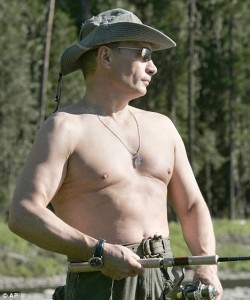
12 — The number of female Moscow State University students who posed in lingerie to mark Putin’s 58th birthday in 2010 in a racy calendar.
16 — The number of years Putin served in the KGB. Five of these Putin worked in Dresden in East Germany. In 1991, he officially retired from the KGB as a lieutenant colonel and became deputy mayor of St. Petersburg, serving under his old law professor Anatoly Sobchak.
20 — The number of palaces, dachas, and country retreats at Putin’s disposal, according to a report drafted by opposition figure Boris Nemtsov. The report, released earlier this year, is ironically titled “The Life of a Galley Slave,” in reference to a phrase Putin once used to describe his life as president.
26.1 — The price in U.S. dollars of a barrel of oil in December 1999 when Putin became Russia’s acting president after Boris Yeltsin’s resignation.
29 — The age of Alina Kabayeva, one of Russia’s most successful rhythmic gymnasts, now a State Duma deputy for United Russia. Russian media has reported on widespread — and unconfirmed — rumors that Kabayeva is Putin’s mistress.
54 – The age of Lyudmila Putina, Putin’s estranged wife.
58 — The number of airplanes and helicopters at President Putin’s disposal, according to Nemtsov’s “Life of a Galley Slave” report.
87.9 — The price in U.S. dollars of a barrel of oil on the eve of Putin’s 60th birthday.
140 — The number of characters used in an impromptu Twitter flash mob last year to mark Putin’s 59th birthday, in which the opposition popularized the “Thank Putin for That” hashtag (#CпасибоПутинуЗаЭто). It was followed by a stream of ironic jibes at the president.
1600 — The time on October 7 that the opposition plans to announce the winner of the most “creative” birthday present for the president. The voting will take place via Facebook on a page called “Let’s Help An Old Man Retire.” It is being organized by Rosagit, a group affiliated with anticorruption blogger Aleksei Navalny.
2002 — The year Putin received for his birthday a dog that could bark “Vova” — the diminutive and affectionate form of his first name, Vladimir.
2,370 — Russia’s average monthly salary in rubles when Putin came to power.
4,230 — The number of days that Putin will still be in the Kremlin if he successfully serves two more terms, until May 7, 2024. He would be 72 years old.
20,702 — The average Russian salary in rubles in 2011, according to Rosstat.
120,000 — Putin’s official salary in dollars.
141.9 million — Russia’s current population. Russia has been in the grips of a demographic crisis spurred by its low male life expectancy and low birth rate, although there is evidence that Russia is beginning to reverse these trends.
146.3 million – The Russian population when Putin came to power.
260 billion — Russia’s GDP in U.S. dollars when Putin first came to power.
1.86 trillion – Russia’s GDP in U.S. dollars in 2011.
RFE/RL correspondent Tom Balmforth
Source: Radio Free Europe/Radio Liberty
Il partito vicino al presidente Saakashvili ha clamorosamente perso le legislative. Troppe sono state nel recente passato le promesse mancate in campo socio-economico insieme alla macchia indelebile di aver scatenato nell’estate 2008 una disastrosa guerra, persa contro la Russia per riconquistare la provincia ribelle dell’Ossezia meridionale. 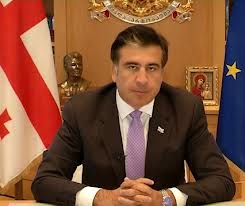
Non appena le litigiose opposizioni sono riuscite a trovare un vero leader i georgiani gli hanno accordato fiducia. La capitale Tbilisi ha votato compatta per il miliardario Ivanishvili, mentre la provincia solo in parte. Il 44enne Michail Saakashvili rischiava di diventare eccessivamente ingombrante non solo per la sua prestanza fisica.
Il 2013 è un anno cruciale per il Paese caucasico. L’eroe della “rivoluzione delle rose” concluderà il suo secondo ed ultimo mandato presidenziale (diventando ineleggibile) ed entrerà in vigore la nuova Costituzione che ridistribuisce i poteri. La Georgia si trasforma in repubblica parlamentare con il primo ministro ad avere prerogative quasi più importanti del capo dello Stato. Grande era, quindi, il pericolo che a Tbilisi andasse in onda una “mossa alla Putin” in cui un leader esce dalla porta principale e rientra dalla finestra.
Diciamolo subito: chi scrive non ha mai avuto simpatia per la “rivoluzione delle rose”, primo cambio di dirigenza pro-occidentale attraverso la piazza nello spazio ex sovietico nel 2003, in tutto simile all’analogo colpo di mano di Belgrado contro Milosevic del ‘99. Saakashivili andò al potere rovesciando il suo maestro e mentore, nonché padrino di suo figlio, Eduard Shevardnadze, uno dei pochi democratici della leadership sovietica che volle la fine della Guerra Fredda. L’uso sapiente dei nuovi mass media e l’appoggio giusto nelle cancellerie statunitense ed europee fecero passare l’ex ministro degli Esteri di Gorbaciov per “un dittatore”, un “dinosauro d’altri tempi”, dimenticando invece che era il garante di una precaria pace in un Paese sconvolto dalla guerra civile e dalle mafie. 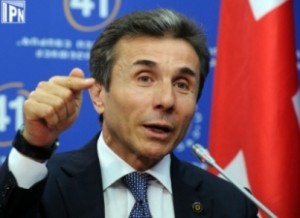
Dopo aver litigato negli anni con tutti i suoi alleati politici Saakashvili ha ora perso gli appoggi in Occidente, che ha puntato su Ivanishvili ricevendo in cambio garanzie sul futuro transito delle materie prime dal mar Caspio fino ai ricchi mercati europei. Il miliardario continuerà la politica di avvicinamento a Bruxelles ed alla Nato, ma tenterà anche di riallacciare le secolari relazioni con la Russia, vicino accomunato da una comune storia e dalla fede ortodossa.
Garantire adesso un tranquillo passaggio di potere sarà il compito primario di Saakashvili, che dovrà una volta tanto mantenere le promesse e assicurarsi un’onorevole uscita di scena.
Sin dalla primavera 1989 i georgiani hanno lottato per la democrazia e sono stati un esempio nell’Urss. Ora paiono esserci riusciti: il tempo dei kalashnikov, dei brogli elettorali e dei golpe di piazza a Tbilisi è davvero finito.
Giuseppe D’Amato
World Cup 2018, the 11 Host Cities.
1 Oct 2012 Eleven Host Cities and twelve stadiums have been selected to host the 64 matches of the 2018 FIFA World Cup Russia.
This was announced on 29 September 2012 at a ceremony with Russian Minister of Sport and chairman of the Russia 2018 Local Organising Committee (LOC), Vitaly Mutko, and FIFA President Joseph S. Blatter, which was broadcast live on Russia’s Channel 1 station.
Among the guests were FIFA Secretary General Jerome Valcke, LOC CEO Alexey Sorokin, Russia’s national team coach Fabio Capello, as well as Brazil’s FIFA World Cup champion Roberto Carlos. 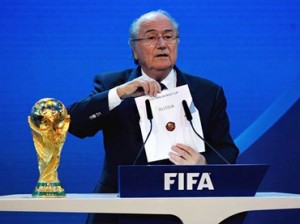
Having been divided into four geographical clusters, the Host Cities of the 2018 FIFA World Cup have been announced as follows: Moscow, the only city with two stadiums, namely Luzhniki and Spartak (central cluster); St. Petersburg and Kaliningrad (Northern cluster); Nizhny Novgorod, Kazan, Samara, Saransk and Volgograd (Volga cluster); Rostov-on-Don and Sochi (Southern cluster) as well as Ekaterinburg.
The FIFA Executive Committee had approved the venues at its meeting on Friday 28 September 2012 in Zurich. The decision on the general match schedule will be taken at a later date.
“The announcement of the Host Cities is the first concrete step taken in the delivery of the 2018 FIFA World Cup. They make a decisive contribution to the success of the most popular sporting event. We look forward to a productive partnership on our road to the first FIFA World Cup in Eastern Europe,” said the FIFA President.
The early announcement of the 2018 FIFA World Cup Host Cities almost six years ahead of the event is a positive move as it allows the host country stakeholders to make a start on preparing the infrastructure to accommodate the football fans who will flock into Russia in 2018.
“The final selection of the 2018 FIFA World Cup Host Cities is an important milestone en route to hosting the tournament in 2018. This decision launches the full-scale preparation for the FIFA World Cup in the 11 Host Cities across the country,” explained LOC chairman Vitaly Mutko.
“I believe all of them broadly represent the cultural and historical diversity of our nation. At the same time, their energetic nature and connection with Russian footballing tradition will allow the FIFA World Cup to leave a powerful and sustainable legacy in all of them.”
The huge level of anticipation for 2018 was expressed by each Host City as they unveiled their poster at the same time as the announcement, the first time in FIFA history this has been done. To see all the posters and the city profiles please visit the official Russia 2018 website.
Source FIFA
Грузия голосует за Парламент.
24 Sep 2012 «Скандал с избиениями и извращенным насилием в тюрьмах стал моральной пыткой для грузинского общества. На него накладывается близость парламентских выборов, в которых окончательно спутались все расклады. 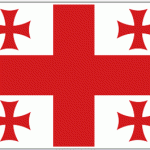
До скандала правящей партии президента Саакашвили социологи отдавали около 60 процентов голосов, а ее основному сопернику, партии бизнесмена Иванишвили, около 30, но теперь прогнозы пошли прахом. Президентская партия лишилась поддержки тех, кто еще думал, за кого голосовать, — говорят одни. Возможно, очищение после этой грязной истории пойдет власти на пользу, — возражают другие. Но в действительности, чем закончатся выборы, не знает никто… »
Репортаж – Айдер Муждабаев Московский Комсомолец № 26049 от 24 сентября 2012 г. Ayder Muzhdabaeyev Moskovskij Komsomolets
Bielorussia, ennesima elezione contestata.
23 Sep 2012 Intimidazioni, arresti di oppositori, litigi geopolitici. Ad ogni elezione in Bielorussia va in scena sempre lo stesso canovaccio. Non fanno eccezione le legislative di quest’anno.
Da martedì 18 settembre hanno già usufruito del voto anticipato ben il 20% degli aventi diritto. Secondo varie denunce le urne con le schede al loro interno rimarrebbero senza controllo e qualsiasi tipo di broglio sarebbe possibile. 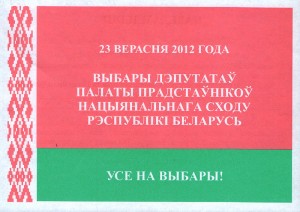
Sono oltre trecento i candidati che si contendono i 110 seggi parlamentari. Dovranno vincere con la maggioranza assoluta nella propria circoscrizione e sperare che l’affluenza alle urne sia superiore del 50% degli aventi diritto. Altrimenti sarà necessario un secondo turno.
I candidati vicini al presidente Lukashenko sono destinati a far man bassa di mandati parlamentari. Le opposizioni hanno infatti ritirato i propri rappresentanti a pochi giorni dal voto. “Queste sono state la peggiore campagna elettorale e le peggiori legislative di sempre”, la loro giustificazione.
Dal 1996 Unione europea, Stati Uniti ed Osce non riconoscono la validità delle elezioni bielorusse, minate da palesi violazioni e lontanissime dagli standard internazionali.
Questa volta una missione dell’Osce, l’Organizzazione per la sicurezza e la cooperazione in Europa, è stata invitata a presenziare alle legislative. Ma a due suoi osservatori (un tedesco ed un lituano) non è stato inspiegabilmente concesso il visto di ingresso.
Ad inizio settimana alcuni giornalisti stranieri, che avevano partecipato ad un incontro organizzato dalle opposizioni, sono finiti dietro alle sbarre. Ad un australiano della SBS è stata sequestrata l’intera attrezzatura all’aeroporto di Minsk.
Da anni Lukashenko ed alcuni alti funzionari bielorussi non possono mettere piede in Unione europea e negli Stati Uniti, dove sono stati dichiarati “persone non benvenute”.
Rispetto ad un paio di anni fa la situazione economica è migliorata anche se l’economia bielorussa rimane sull’orlo dell’abisso. Finora Minsk si è salvata soltanto grazie all’aiuto finanziario di Mosca, che teme di trovarsi alle frontiere un governo pro-occidentale. In cambio di questo sostegno la Russia si è comprata gli oleodotti e i gasdotti in transito sul territorio bielorusso verso l’Europa.
Bykivnia, the Ukrainian Katyn.
21 Sep 2012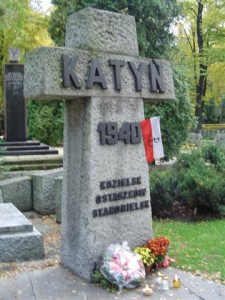
copyright EuropaRussia
“We had to wait a long time for this moment, fervently believing that it must come to pass. It is difficult to find words that express how we Poles feel” Polish President Bronislaw Komorowski said during the ceremony.
The wooded site at Bykivnia is understood to be the final resting place of 3,435 Polish citizens murdered in 1940 on Stalin’s orders by the Soviet secret police (NKVD).
The executions were part of the broader Katyn Crime in which over 22,000 Poles – largely reserve officers – were killed in mass executions at various points across the Soviet Union, including the Katyn Forest near Smolensk.
The final resting place of the Poles on the so-called “Ukrainian Katyn List” had long remained a mystery. In 2007, Polish archaeologists working at Bykivnia discovered the dog tags of Sergeant Jozef Naglik, as well as a comb with the names of four Poles inscribed on it.
The names tallied with the so-called Ukrainian List, which makes up about 15 percent of the Poles executed during the Katyn Crime. Identifying individual victims has proved largely impossible.
According to researched data, the mass burials in Bykivnia are the largest ones in Ukraine. Preliminary estimates indicate that during 1937-1941 more than 100,000 Ukrainians were also destroyed and secretly buried here.
Ukrainian President Vikor Yanukovich called the opening of the Polish war cemetery a “a moment of Solidarity between the two nations.”
Sources: Polish Radio, Memorial Kiev
Exhibitaly: Italian excellence in Moscow.
12 Sep 2012 Made in Italy takes centre stage in Moscow for four months in an exhibition at Moscow’s former chocolate factory and urban icon ”Krasni Oktiabr”, whose façade will be permanently lit with a 3-colour rendition of the Italian flag.
The Patriarshi most, the footbridge across the Moskova opposite the factory, will be transformed from 12 September to 28 October into an open-air “grand tour of Italy”, with ten transparent cases displaying Italian-made icons, which will include dresses by Valentino, Salvatore Ferragamo and Ermenegildo Zegna, a Ferrari, a Vespa, an Aprilia and two giant Arcimboldo sculptures in celebration of pasta and wine.
The initiative is entitled ”Exhibitaly – Italian excellence today” and was presented in Moscow (and simultaneously at Palazzo Chigi in Rome) at the Headquarters of the Itar-Tass agency by Italian Ambassador Antonio Zanardi Landi. “We intend by this event to further enhance our image”, he explained, citing a rise of 33% in Italian exports to Russia 2011 (according to the more realistic Russian statistics that keep track of the origin of imports), along with increased Russian tourism in Italy (visas issued are up 40%).
The Government has earmarked €4.5 million for the promotion of Made in Italy in Russia – “an important sign at a moment when we are seeking to unite rigor with growth”, the ambassador commented in the margins of the event. The opening is planned for 12 September, with “The energy show”, two exhibitions curated by ENEL, to be followed by home design (11-28 October), fashion design (7-27 November) and innovation (5 December ’12 – 6 January ’13). A broad series of side events are also planned involving the works of famous Italian Renaissance and major contemporary artists.
source: Italian Foreign Ministry
APEC Leaders issued a Declaration at the conclusion of the 20th APEC Economic Leaders’ Meeting in Vladivostok on Sunday, revealing pathways to strengthen the Asia-Pacific region’s prosperity and leadership in the global economy.
The Declaration outlines APEC Leaders’ view on addressing the challenges and downside risks within the global economic environment, including financial markets that remain fragile. 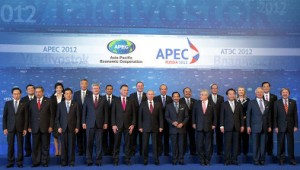
During Sunday’s session, Leaders were briefed by International Monetary Fund Managing Director, Christine Lagarde.
The Declaration details steps for building on the progress achieved by member economies in realizing APEC’s 2012 priorities:
- Trade and Investment Liberalization, Regional Economic Integration
- Strengthening Food Security
- Establishing Reliable Supply Chains
- Intensive Cooperation to Foster Innovative Growth
Several annexes accompany the Declaration:
- Annex A. Towards innovative growth
- Annex B. Strengthening APEC energy security
- Annex C. APEC list of environmental goods
- Annex D. Promoting cross-border education cooperation
- Annex E. Fighting corruption and ensuring transparency
Leaders also welcomed the invitation from Indonesia President Susilo Bambang Yudhoyono to meet in Bali in 2013.
Welcome
We are a group of long experienced European journalists and intellectuals interested in international politics and culture. We would like to exchange our opinion on new Europe and Russia.
Categories
- Breaking News (11)
- CIS (129)
- Climate (2)
- Energy&Economy (115)
- EU Eastern Dimension (85)
- Euro 2012 – Sochi 2014 – World Cup 2018, Sport (43)
- Euro-Integration (135)
- History Culture (198)
- International Policy (261)
- Military (74)
- Interviews (18)
- Italy – Italia – Suisse (47)
- Odd Enough (10)
- Poland and Baltic States (126)
- Religion (31)
- Russia (421)
- Survey (4)
- Turning points (4)
- Ukraine (176)
- Российские страницы (113)
Archives
- November 2020
- October 2020
- September 2020
- August 2020
- July 2020
- May 2020
- April 2020
- March 2020
- January 2020
- December 2019
- November 2019
- October 2019
- September 2019
- August 2019
- July 2019
- June 2019
- May 2019
- April 2019
- March 2019
- February 2019
- December 2018
- November 2018
- October 2018
- September 2018
- August 2018
- July 2018
- June 2018
- May 2018
- April 2018
- March 2018
- February 2018
- January 2018
- December 2017
- November 2017
- October 2017
- September 2017
- August 2017
- July 2017
- May 2017
- March 2017
- January 2017
- December 2016
- November 2016
- October 2016
- September 2016
- July 2016
- June 2016
- May 2016
- April 2016
- February 2016
- January 2016
- November 2015
- October 2015
- September 2015
- June 2015
- April 2015
- March 2015
- February 2015
- January 2015
- December 2014
- November 2014
- October 2014
- September 2014
- August 2014
- July 2014
- June 2014
- May 2014
- April 2014
- March 2014
- February 2014
- January 2014
- December 2013
- November 2013
- October 2013
- September 2013
- August 2013
- July 2013
- June 2013
- May 2013
- April 2013
- March 2013
- February 2013
- January 2013
- December 2012
- November 2012
- October 2012
- September 2012
- August 2012
- July 2012
- June 2012
- May 2012
- April 2012
- March 2012
- February 2012
- January 2012
- December 2011
- November 2011
- October 2011
- September 2011
- August 2011
- July 2011
- June 2011
- May 2011
- April 2011
- March 2011
- February 2011
- January 2011
- December 2010
- November 2010
- October 2010
- September 2010
- August 2010
- July 2010
- June 2010
- May 2010
- April 2010
- March 2010
- February 2010
- January 2010
- December 2009
- November 2009
- October 2009
- September 2009
- August 2009
Our books




